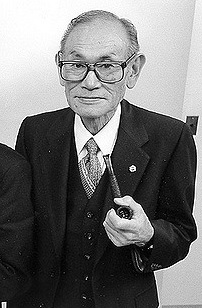A Quote by Benjamin Franklin
Related Quotes
When it comes to partisan politics, everyone is a hypocrite. And all they care about is whether it hurts or helps them ... Is it good or bad for the Democrats? Is it good or bad for the Republicans? Is it good or bad for Jews, or good or bad for blacks, or is it good or bad for women? Is it good or bad for men? Is it good or bad for gays? That's the way people think about issues today. There is very little discussion of enduring principles.
The terms good and bad indicate no positive quality in things regarded in themselves, but are merely modes of thinking or notions, which we form from the comparison of things one with another. Thus one and the same thing can be at the same time good, bad, and indifferent. For instance, music is good for him that is melancholy, bad for him that mourns; for him that is deaf; it is neither good nor bad.
[When anything happens, we interpret it as good or bad, but...] We do not know what is really good or bad fortune. [Only the future can decide. For example, what appears to be bad today may in fact lead us to a greater good tomorrow and by the very act of thinking and planning in that positive way, we can help make that good future come true.]

































